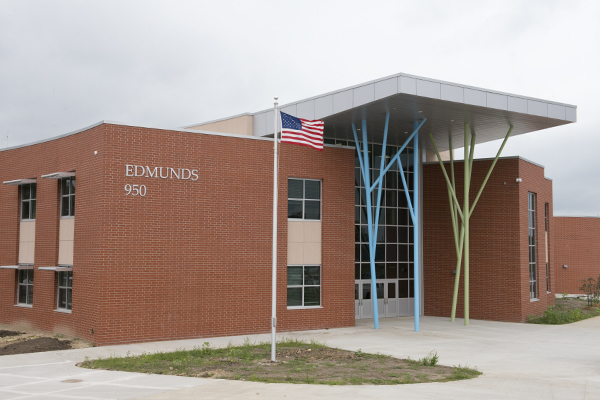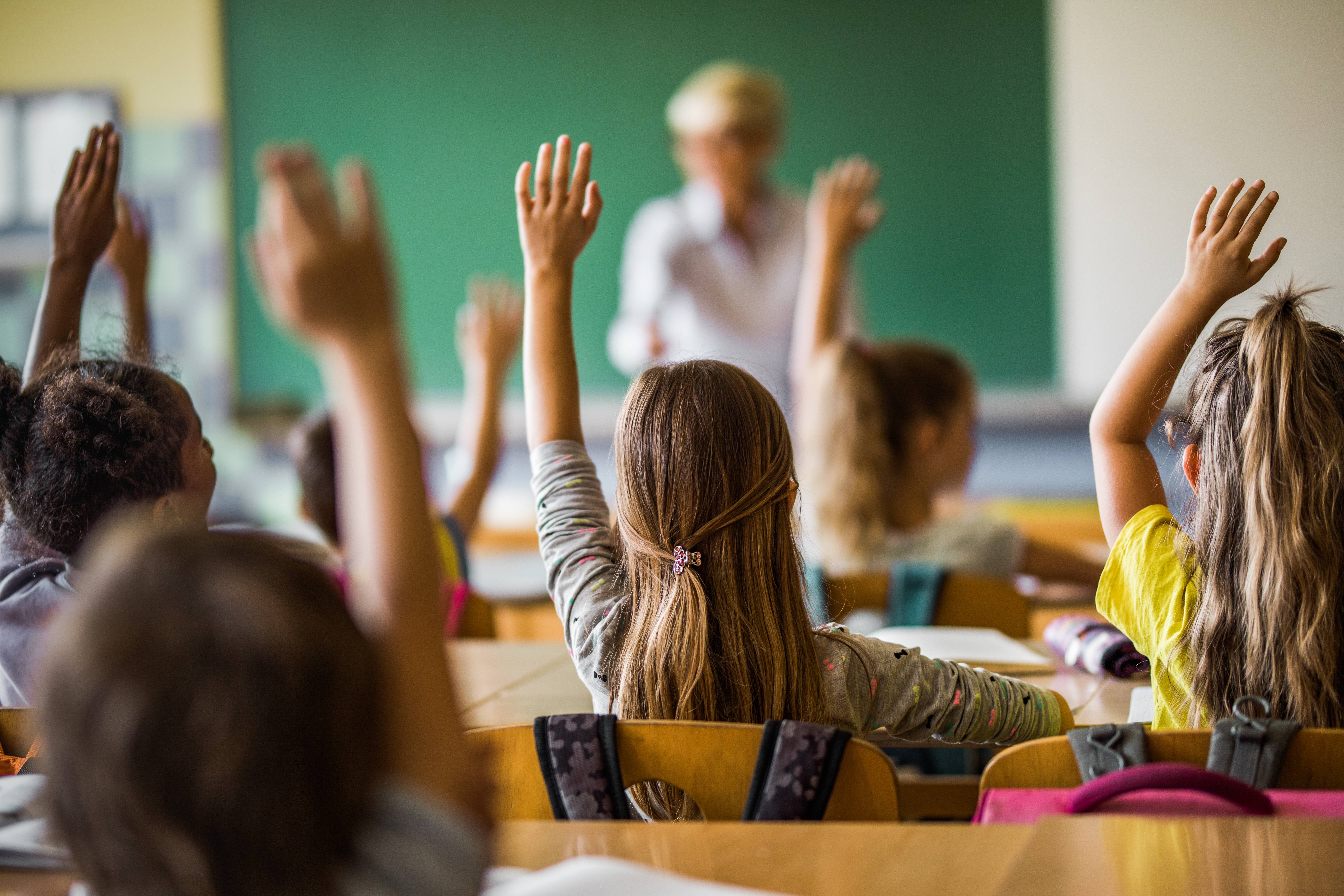How Schools Play a Critical Function in Shaping Future Leaders and Pioneers
By integrating project-based discovering and interdisciplinary researches, academic establishments test students to analyze and synthesize intricate details. Educators offer as advisors, leading trainees and nurturing their potential, while extracurricular activities even more create leadership skills and resilience.
Fostering Vital Thinking
In today's swiftly advancing world, fostering crucial assuming within educational establishments has ended up being paramount. As culture faces significantly complex international difficulties, the capacity to assess, examine, and manufacture details is important. Institutions play a critical role in establishing these abilities, preparing pupils to navigate and resolve multifaceted issues with notified, reasoned decisions.
To grow critical thinking, educators utilize various pedagogical techniques that motivate active discovering and intellectual engagement. Classroom discussions, problem-based understanding, and Socratic examining contribute in advertising reflective and logical idea procedures. By testing pupils to interrogate presumptions and take into consideration several perspectives, these techniques make certain a much deeper understanding of subject beyond rote memorization.
Furthermore, incorporating crucial believing throughout the educational program enhances its value and applicability in diverse contexts. Topics such as maths, science, history, and literary works each offer distinct chances to establish students' important faculties. Examining historical events calls for recognizing and evaluating sources context, while clinical inquiry needs strenuous theory testing and evidence-based thinking.
Eventually, instilling critical believing abilities in trainees outfits them with the cognitive devices essential for lifelong knowing and versatility. It is through this fundamental competence that future leaders will certainly have the ability to innovate, fix problems, and contribute meaningfully to society.
Urging Imagination
Accepting creativity within instructional frameworks galvanizes trainees to think beyond conventional borders and check out ingenious remedies. By incorporating artistic ventures and imaginative reasoning exercises into the educational program, schools grow an environment where creativity and creative thought are valued. This method not just enriches the instructional experience but also gears up trainees with the capacity to tackle real-world obstacles in novel means.
Educational institutions can promote creative thinking through diverse means such as project-based discovering, interdisciplinary research studies, and the consolidation of arts and modern technology. Project-based learning, as an example, urges trainees to use their knowledge in practical, usually collective, jobs that require creative analytic skills. Interdisciplinary research studies enable pupils to attract links between different topics, thus widening their viewpoints and improving their innovative capabilities.
In addition, giving trainees with opportunities to engage with emerging innovations, such as coding and electronic layout, better nurtures their creative possibility. These activities prompt trainees to experiment, stop working, and repeat, which are essential components of the innovative process (Save Temecula Schools). By keeping a supportive atmosphere where trial and error is urged, institutions can make certain that pupils create the confidence to pursue cutting-edge concepts
Basically, supporting creative thinking in academic settings is essential for shaping future leaders and trendsetters with the ability of dealing with complex international problems with resourcefulness.
Promoting Collaboration

Carrying out group-based knowing components and cooperative projects enables students to experience the dynamics of team effort firsthand. This not only prepares them for the collaborative nature of contemporary work environments however likewise nurtures management qualities as they typically have to take on functions such as job managers or team coordinators. Additionally, cooperation in the class can damage down social obstacles and advertise inclusivity, guaranteeing that each pupil feels valued and heard.
Furthermore, incorporating technology can even more sustain collective efforts. Tools like common digital workspaces and interactive platforms make it possible for trainees to collaborate effectively, even outside the class. As trainees develop these collective abilities, they are better furnished to tackle complex obstacles and introduce, preparing for their future duties as leaders and pioneers.
Role of Educators as Mentors

Mentorship entails personalized attention, where instructors identify and nurture individual toughness and address weaknesses. Save Temecula Schools. With one-on-one communications, instructors can customize their suggestions and support to fulfill each student's distinct demands, cultivating a feeling of self-confidence and resilience. This tailored technique cultivates a growth way of thinking, encouraging trainees to check out failures as possibilities for learning and growth
Additionally, instructors act as good example, showing the worths of determination, empathy, and integrity. Their mindsets and activities offer a plan for students to replicate, instilling a sense of honest duty and social awareness. By developing a supportive and inclusive class atmosphere, instructors enable trainees to develop interpersonal skills that are vital for reliable management.
Essentially, the mentorship provided by teachers lays a fundamental structure for the advancement of future leaders, outfitting them with the understanding, abilities, and values required to master an ever-evolving globe.
Influence of After-school Activities
When integrated properly into the instructional structure, extracurricular tasks dramatically improve trainee development and management capacity. These activities provide trainees with opportunities to explore passions beyond the traditional educational program, these details promoting a versatile skill set.
Trainees engaged in dispute, songs, or dramatization clubs find out to assume critically and method issues from varied viewpoints. By teaming up with peers from different backgrounds, students likewise develop compassion and communication skills, vital characteristics for future leaders.
Study indicates that trainees involved in such programs often tend to have higher grades and better presence records. Thus, colleges that prioritize a balanced technique to education, incorporating durable his comment is here extracurricular programs, are a lot more likely to create leaders and pioneers equipped to satisfy the challenges of the future.

Conclusion
Finally, schools substantially shape future leaders and trendsetters by supporting important thinking, creative thinking, and collaboration among pupils. Involving instructional methods such as project-based knowing and interdisciplinary studies play an essential duty in this advancement. Educators, functioning as advisors, provide crucial assistance and assistance, while after-school activities further enhance leadership possible and resilience. By promoting an encouraging environment that values private toughness and synergy, colleges furnish pupils with the necessary abilities to navigate future difficulties and drive technology.
As trainees create these collaborative skills, they are better furnished to take on intricate challenges and innovate, laying the foundation for their future functions as pioneers and leaders.
By fostering crucial thinking and analytic skills, teachers aid students browse complicated challenges, preparing them for management duties in different fields.
By collaborating with peers from visit this site right here various histories, students also create empathy and communication abilities, necessary qualities for future leaders.
In final thought, schools significantly form future leaders and trendsetters by nurturing essential thinking, creativity, and cooperation among pupils. By cultivating a helpful atmosphere that values individual staminas and teamwork, colleges gear up students with the needed skills to browse future challenges and drive technology.